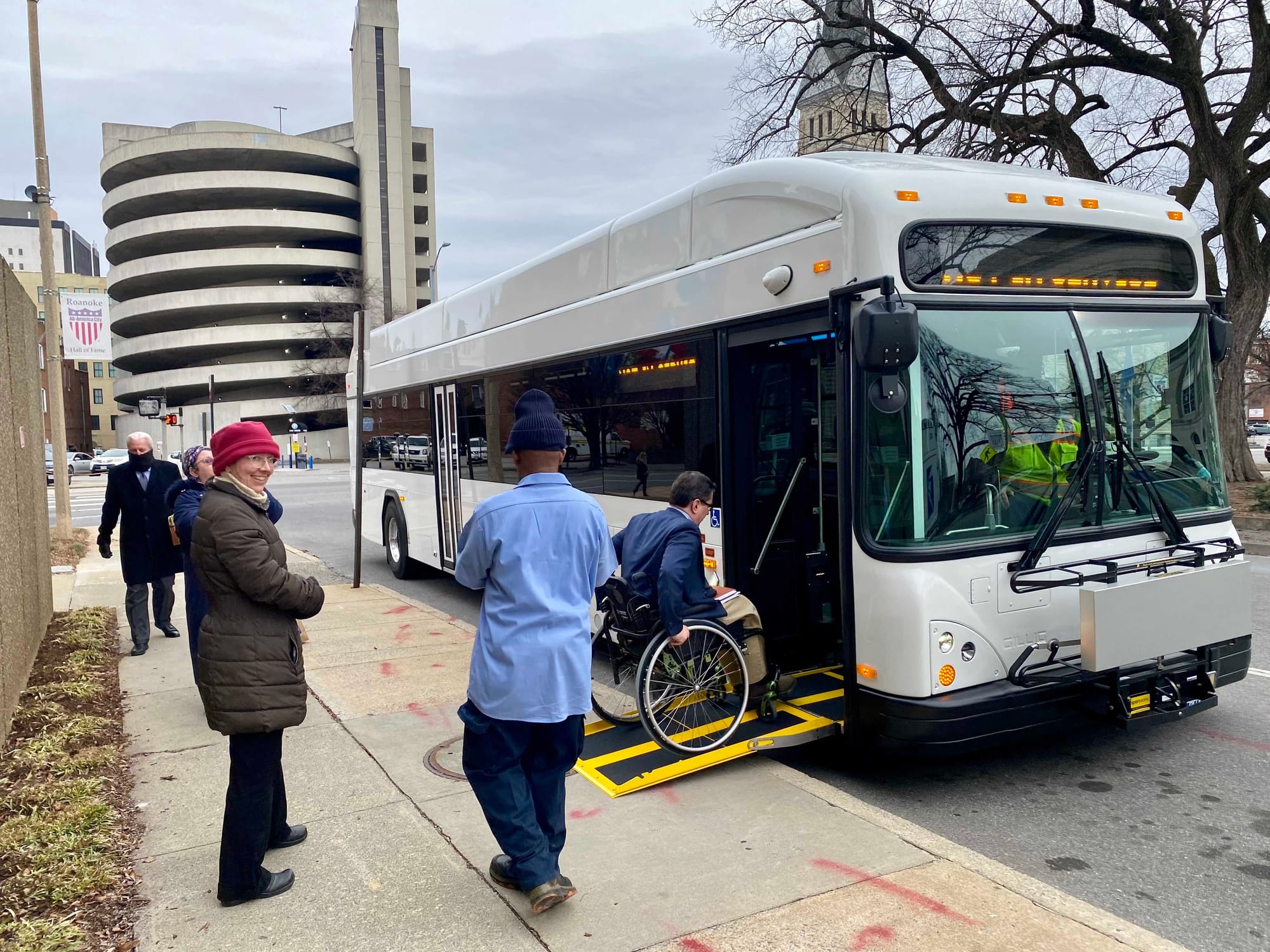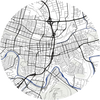Ramblings: Roanoke's Electric Buses Arrive; 11 Apply for City Council Vacancy; Industrial Sites Greenlit as Urban Centers
What are Ramblings? Ramblings are a collection of short items that have caught our attention for one reason or another.
What are Ramblings? Ramblings are a collection of short items that have caught our attention for one reason or another. We’re on the lookout for tidbits related to money in politics, data, business, civic engagement or interesting events. Think you know of something that could be a Rambling? Drop us a line at editor@roanokerambler.com and we may well write about it. Happy reading!

Roanoke to unveil three electric buses
An electric bus glided around the municipal building Tuesday as city leaders celebrated a Roanoke first.
Three electric buses are coming to Valley Metro’s 51-vehicle fleet. Riders will start hopping on the new buses in February or March, according to Kevin Price, general manager of Valley Metro, after drivers receive training.
It’s been a years-long wait for the buses, which got caught up in supply chain issues.
Each bus was built in San Francisco and cost $950,000, Price said. The money came from state and federal grants, including settlement money from Volkswagen, which the government accused of cheating emissions tests.
The first bus arrived in Roanoke last month and another came this month; a third is delayed.
Though Valley Metro officials expected the electric bus to be shipped via flatbed trailer, a driver actually drove it across the country, Price said.
“We asked her, ‘How did you charge the bus?” Price said, noting that they have a 230-mile charge in good conditions. “She said, ‘I was able to stop at any charging station,’ Tesla, any other charging infrastructure across the country.”
“If it can come from California to here, I think it can go to Melrose and Walmart and everything else we have here,” Price added.
Roanoke’s Third Street Station, which opened in 2023 to the tune of about $14 million, includes three electric vehicle charging stations for the 40-foot buses.
“I guarantee you the first question you’ll ask when you step on the bus is, ‘Is it running?’” Price told members of the Greater Roanoke Transit Company board of directors.
“It purrs. Purrs like a kitten,” Mayor Joe Cobb said as he stepped aboard with other city officials.
The all-white buses will be wrapped with Valley Metro-branded designs. Price has said Valley Metro will distinguish the buses from the diesel fleet as well as try to alert residents to the quiet nature of the vehicles.
11 apply for City Council vacancy
Nearly a dozen Roanokers are seeking a two-year appointment to City Council, a seat left vacant after Joe Cobb was elected mayor.
Former councilwoman Trish White-Boyd and former city treasurer Evelyn Powers were the only two applicants who received endorsements Tuesday from citizens speaking before Council.
Council has until Feb. 14 to appoint someone to fill the seat through December 2026.
In addition to White-Boyd and Powers, contenders for the Council vacancy include Ryan Bell, Cameron Chase, Kathy Cohen, Manuel Dotson, Patrice Hampton, William Hunter Hartley, Ollie Howie, Gregory Hunt and James Martin IV, according to the city clerk’s office.
Political heavyweights including former mayor Sherman Lea and former council members Anita Price and Djuna Osborne urged Council to appoint White-Boyd to the vacancy.
“Having worked with Ms. White-Boyd during her time on City Council, which ended about 21 days ago, I can attest to her strong analytical skills, exceptional interpersonal abilities and a deep understanding of fiscal matters, especially as it relates to the budgetary issues that you all will be faced with very shortly,” Lea said.
White-Boyd, a Democrat, opted not to run for reelection last year. Powers, a longtime Democrat, ran as an independent and placed fourth behind newcomers Terry McGuire, Phazhon Nash and Nick Hagen.
Resident Candice Verwey noted that Lea, Councilman Peter Volosin and White-Boyd herself endorsed Powers last year over one of the Democratic nominees.
“If she was qualified during the election cycle, why not now?” Verwey said. “The voters have spoken.”
Eleven speakers expressed support for White-Boyd and seven backed Powers.
Cobb said in a text after Tuesday’s meeting that Council had not yet decided whether to make an appointment outright or to hold interviews with finalists.
For a school board vacancy, former city manager Darlene Burcham threw her hat in the ring, as did Christopher Link, Jaime Mather and Susan Reese, according to the clerk’s office.
The seat held by Natasha Saunders-Cotton, who resigned last month, runs through June 2026. Cobb said Council intends to hold a public hearing Feb. 3 on school board finalists and make its decision on Feb. 18.
Industrial sites rezoned for development
Proposals to redevelop major industrial sites in Roanoke advanced after a key vote Tuesday from city government.
Riverdale, the former American Viscose Plant, and the former Walker Foundry property, will be rezoned under a new “Urban Center” designation. City Council voted 6-0 on both applications.
Developers of Riverdale in Southeast Roanoke are planning to transform the old rayon plant into a neighborhood with homes, restaurants, businesses and recreation. Developers filed plans for a 267-unit apartment building, and an 85-unit adaptive reuse project is also in the works.
In the Norwich neighborhood, a developer intends to turn 12 acres of the former Walker Foundry into an apartment complex, restaurant and pickleball courts.
“There’s a lot of momentum that I think this project can bolster for that area, Norwich,” Ben Crew, a consultant on the project, said.
Councilman Peter Volosin praised the developer for proposing new life to an area that abuts the Roanoke River Greenway.
“I’m so excited to see us zoning from industrial and light industrial to urban center,” Volosin said.
Roanoke created the new district in March as part of sweeping zoning reforms, which also ended exclusively single-family zoning. The Riverdale and Walker Foundry projects are the first two properties to be rezoned as urban centers.
The purpose of the district is “to permit a mixture of retail, office, residential, and light industrial uses in a concentrated pedestrian-friendly area outside of Downtown,” the city code says.
Such districts call for Interconnected street grids that accommodate walking, biking and transit. Buildings are meant to be located next to sidewalks. The urban centers are intended for “a mix of high density residential, commercial, retail, government services, entertainment and cultural facilities, and live/work space,” the code says.

